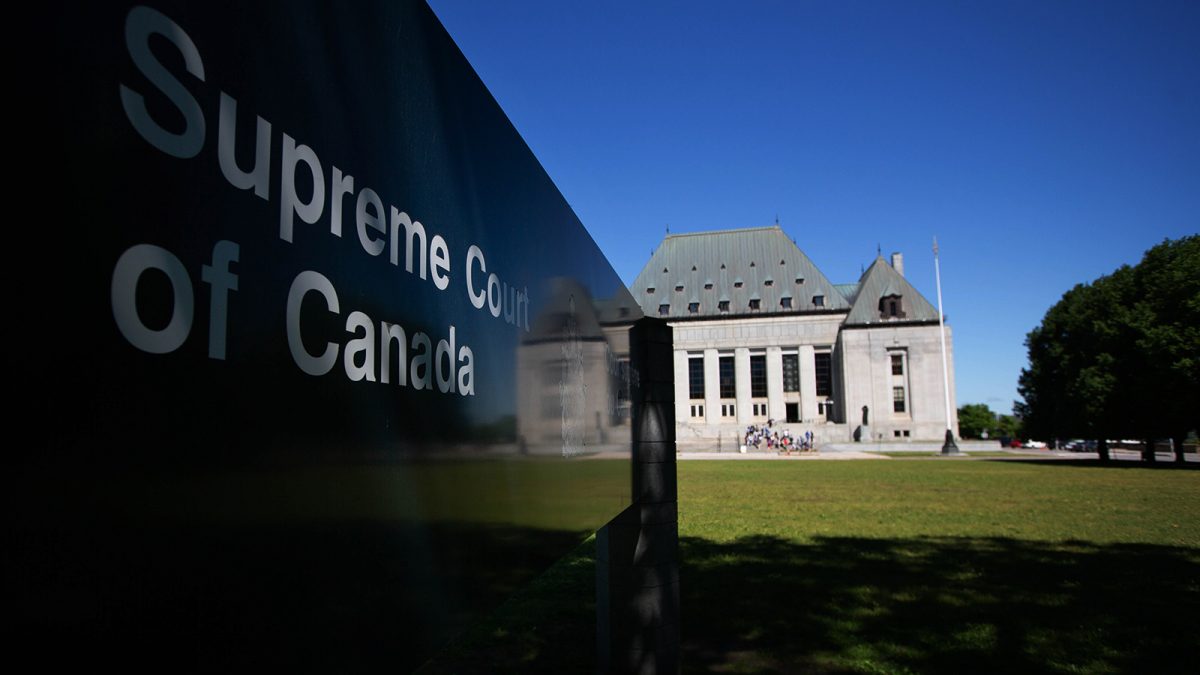By Salma Mahgoub
Two-time Grey Cup champion Arland Bruce will never know why the Supreme Court of Canada refused to hear his appeal.
The 40-year-old former football player, who played for various Canadian Football League teams, said he suffered concussions while playing for the B.C. Lions in 2012. Bruce sued the CFL for negligence two years later, arguing it should not have allowed him to play while displaying ongoing effects of concussion. After losing at the B.C. Supreme Court and B.C. Court of Appeal, and with the country’s top court dismissing his application last year, Bruce’s case reached the end of the legal road.
“To every litigant, their case has personal significance, and to understand why it is they’ve reached the end of the road is particularly important,” says Toronto lawyer Denise Cooney. “I think they’re entitled to an explanation for the court’s decision on their case.”
Since it was established, the Supreme Court has never explained why it approves or dismisses requests for appeal, except in extremely rare cases. While some legal experts see this practice as an important part of maintaining the court’s discretion, others argue it is inconsistent with transparent decision making.
Given the impact of the leave-to-appeal process on the legal system, the court should issue reasons for its judgments, says Cooney, who wrote the 2012 article An Absence of Reason: Why the Supreme Court of Canada Should Justify Dismissing Applications for Leave to Appeal.
“I don’t think there’s any suggestion that the Supreme Court is improperly exercising this discretion,” she says. “But I do think public awareness and public transparency are important, and explaining the reasons why particular decisions are made does go towards that.”
Unlike any other court in Canada, the Supreme Court gets to choose which appeals it will hear. The most common way to get a case heard is by requesting permission through a leave-to-appeal application, which can cost anywhere from $800 to more than $2,000 to prepare.
On average, the court receives 600 leave applications a year and only grants about 80, a success rate of roughly 13 per cent, according to the court’s statistics.
The choice to grant or dismiss leave applications is up to panels of three justices. The Supreme Court Act states the court will grant leave to appeal if the case involves a question of public importance, a term that is not defined, or if it raises an important issue of law that warrants consideration by the court.
“That doesn’t really tell you very much,” says Cooney, adding that if the court were to give reasons for dismissing an application, it would help in understanding the court’s approach. This, she says, might also help lawyers advise their clients on seeking leave to appeal and in drafting the application.
Toronto lawyer Geoff Hall agrees. “It’s hard to tell what’s actually going on and what the court is looking for in terms of a leave decision,” he says. “We’ve got some idea of what is taken into account but not completely, and that’s where giving reasons could add some clarity.”
For Ottawa lawyer Eugene Meehan, leaves to appeal do offer an insight into the thinking of the Supreme Court, even without reasons. “What is granted and what is dismissed is a meteorological gauge into the state of the juridical weather,” says Meehan, who was an executive legal officer at the court from 1990-1992.
But Hall says it’s strange no reasons are given. “It’s unusual from a legal perspective to have a decision-maker not give reasons. The Supreme Court itself insists that all lower courts give reasons on almost everything,” says Hall, who works at the firm McCarthy Tétrault.
There is precedent for giving reasons in leave-to-appeal decisions. In March 2012, the United Kingdom’s Supreme Court began giving brief, formulaic reasons for every leave to appeal it dismisses. The explanations are no more than a paragraph and include reasons such as “the application does not raise an arguable point of law.”
If the Canadian Supreme Court were to follow, it would do so at a cost to other tasks, says Meehan. “They hear in writing between 500 and 600 leaves to appeal (annually), and if they are to give reasons for all, some, or a lot of the leaves it would affect their ability overall to be judges with regard to appeals.”
While Cooney recognizes that issuing reasons could present challenges, she also sees its value.
“Requiring reasons would certainly place additional burdens on judges and the Canadian judicial system,” she writes in her article, “but this is the burden that judges must accept in a legal system marked by a culture of justification.”





I would suspect that Supreme Court judges do not give reasons for their decisions because it could easily erode the notion of “supreme.”
Being the supreme and ultimate judgement on legal matters does not mean the decisions should not be based on law and based on precedence. Decisions are made and are reflective of the rule of law not the mere waving a Royal finger.